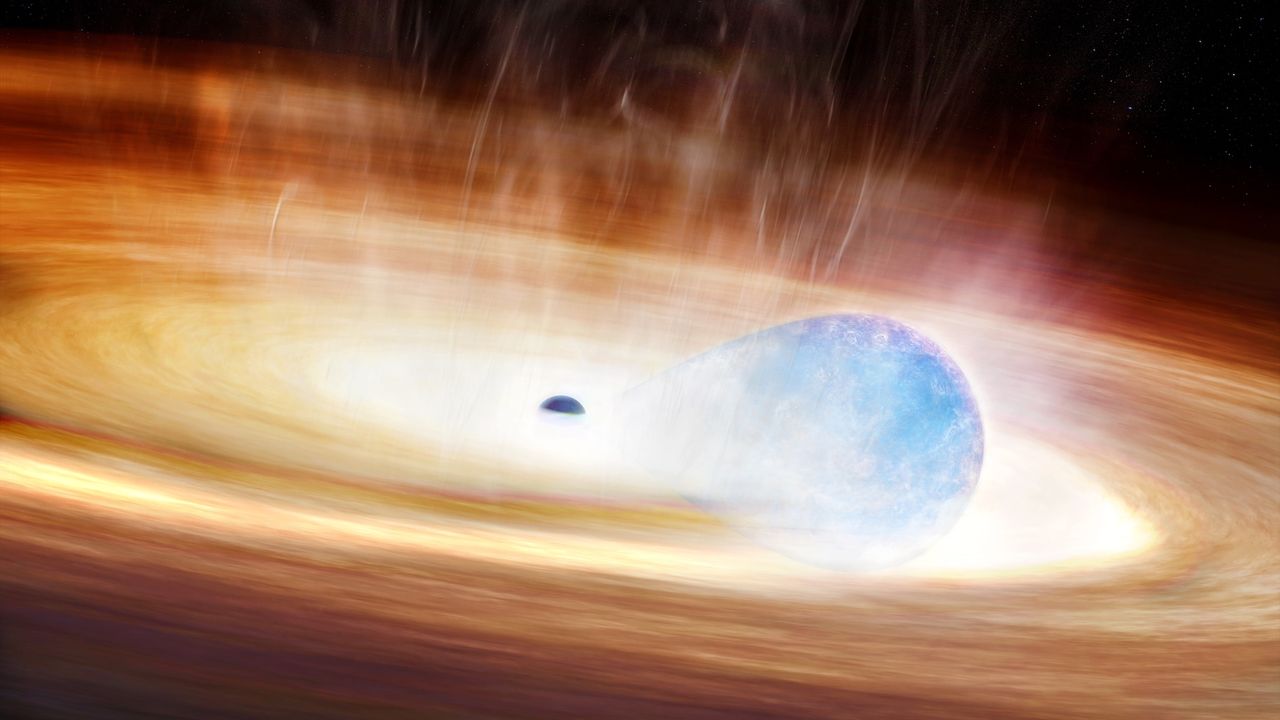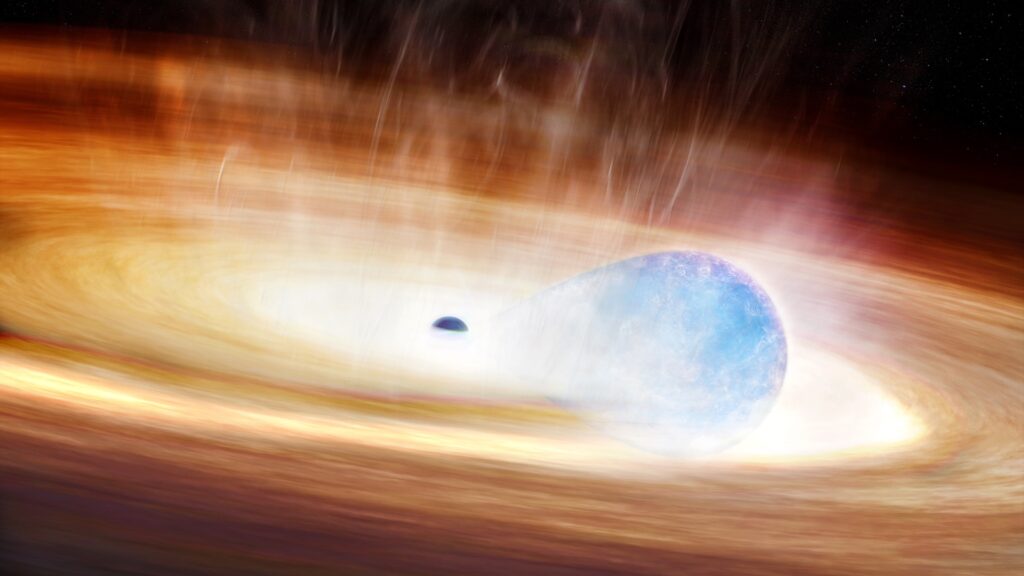
Scientists may have spotted a never-before-seen kind of supernova, after using a Spotify-like artificial intelligence (AI) to scan the skies for strange activity.
The AI unearthed signs of what could have been a huge star blowing up just as it was attempting to gulp down a nearby black hole.
The stellar explosion, dubbed SN 2023zkd, was spotted in July 2023 with the Zwicky Transient Facility, a full-sky astronomical survey based at the Palomar Observatory in California. But Zwicky didn’t find the explosion through happenstance. Rather, it was guided to the right spot using an algorithm optimized to find weird night-sky activity.
Spotting the signs of a supernova early is key to catching how supernovas start, evolve and then fade away — providing insight into how these explosions work.
In this case, the AI found unusual brightenings months before the explosion happened, study co-lead authors Alex Gagliano, a postdoctoral researcher at the Institute For AI and Fundamental Interactions, and Ashley Villar, a supernova researcher and assistant professor at the Harvard-Smithsonian Center for Astrophysics, told Live Science in an email.
This quick alert enabled a number of large observatories to get in on the action and provide observations across a large spectrum of wavelengths.
Related: 2 ‘new stars’ have exploded into the night sky at once — potentially for the first time in history
While there are a couple of ideas about what these telescopes actually saw, the scientists behind the new study say the explosion was most likely from a huge star orbiting the black hole. As these two objects tugged at each other, the separation between them decreased. Eventually, the star attempted to consume the black hole and exploded in the process, due to gravitational stress.
Alternatively, it could have been that the black hole shredded the star via a process known as “spaghettification,” causing the explosion, but the data does not suggest that as strongly, Gagliano said.
By looking at the massive star’s chemical composition, the team also found that it had not lost all of its outermost material before it exploded.
“This suggests that binary interaction is a lot messier than astronomers have thought,” Gagliano said. “Upcoming events will tell us how the explosions of massive stars are shaped by companion interaction, which is very difficult to model at present.”
Gagliano cautioned that nobody has seen enough of these explosions to fully predict how a huge star and a black hole might interact. The data, however, is “very hard to explain without a binary system,” meaning that a black hole and star were very likely involved in some way.
AI assistance
The AI used in the discovery is called Lightcurve Anomaly Identification and Similarity Search (LAISS). The astronomy AI is based on the Spotify algorithm, so LAISS recommends astronomical observations in a similar way that Spotify users are guided to songs they may enjoy.
The latest explosion came to the attention of LAISS due to properties from the light of the binary system, and its location 730 million light-years from Earth. Features of SN 2023zkd were “compared against a large reference dataset of known objects to identify statistical outliers,” Gagliano said. “Anomalous signals may indicate rare or previously unseen phenomena.”
Once LAISS finds something interesting, a bot in Slack, an instant messaging service, flags candidates and posts them into a dedicated channel, enabling team members to check out the findings in real time.
“This streamlined system enables astronomers to rapidly target the most promising and unusual discoveries,” Gagliano said.
After the explosion, the light pattern of SN 2023zkd became very strange. At first it brightened just like a typical supernova, then declined. But astronomers really began to pay attention when it brightened once again. Archival data showed more strange behavior: The star, which had been at a consistent brightness for a while, was gradually getting brighter in the four years before it exploded.
Astronomers think the light comes from the excess material the star was shedding. At first, it got brighter as the shockwave from the supernova plowed into lower-density gas in the region. Another brightness peak later came as the shockwave continued into a cloud of dust.
As for the presence of the black hole, astronomers inferred it both from the structure of the gas and dust, as well as the strange stellar brightening in the years before the explosion.
LAISS helped astronomers to see all this extra detail. “If we had waited until a human flagged 2023zkd, we would have missed the early signatures of the surrounding disk and the existence of a black hole companion. AI systems like LAISS help us regularly find rare explosions, without relying on luck, and early enough to uncover their origins,” Gagliano said.
The results were published on Wednesday (Aug. 13) in The Astrophysical Journal.
